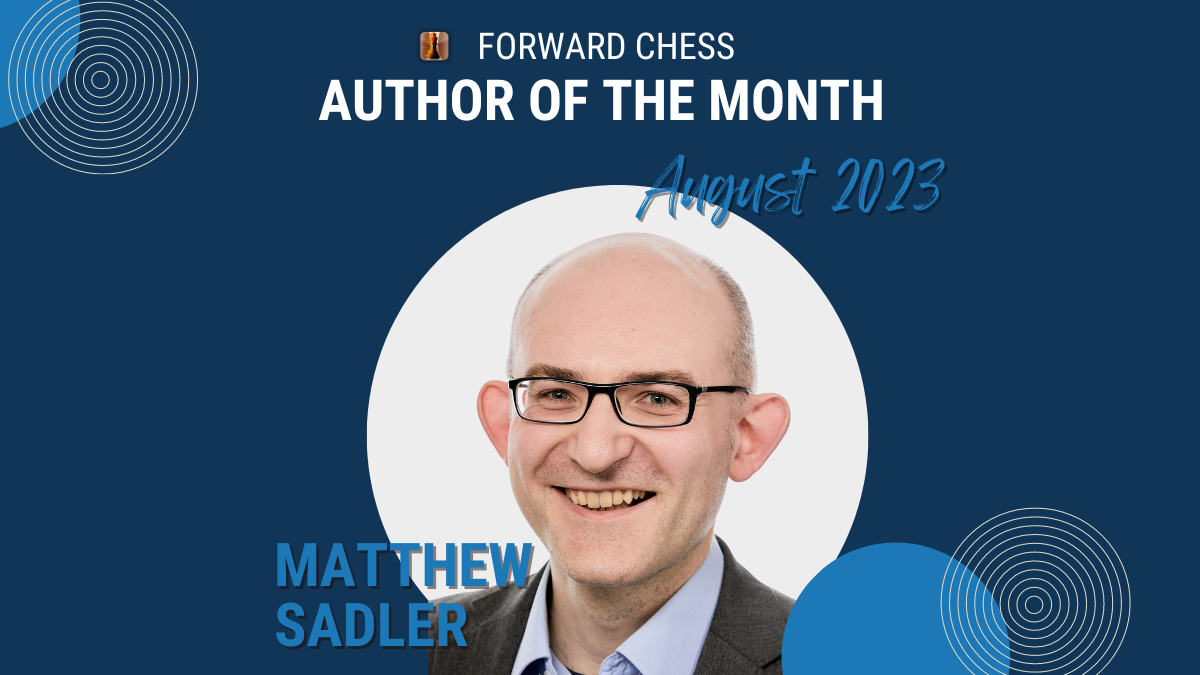Get to know our Forward Chess author of the month for August 2023, Grandmaster Matthew Sadler and his colorful career as a player and author.
Matthew Sadler
My career as a chess player can be divided neatly into 2 parts. I left school at 16 and became a professional player, retiring at the age of 25. After a break of some 10 years, I came back to chess – this time as an amateur – and I don’t think I’ll manage to escape from chess ever again (nor want to!)
Somewhat to my surprise, the long break away from the game seemed to do no harm to my chess! I was madly keen to play and I won 2 big international opens in the latter part of 2011. However at the beginning of 2012, my form faltered and I had a terrible performance at Wijk Aan Zee, losing 29 ELO points (it felt like more!) I was bitterly disappointed of course, but more than that I was intrigued. What had caused such a difference in level in just a couple of months?
This soul-searching led to “Study Chess with Matthew Sadler” (Everyman) in which I tried to describe all the good and bad things I had done, and explain why things had gone as they had! It’s a very personal book, full of games you won’t find in the databases and unusual insights and tips for improvement. My favorite game from the book features the most offbeat opening I have ever played: 1…a6 and 2…h6 with which I defeated a young Dutch International Master in 22 moves as Black!
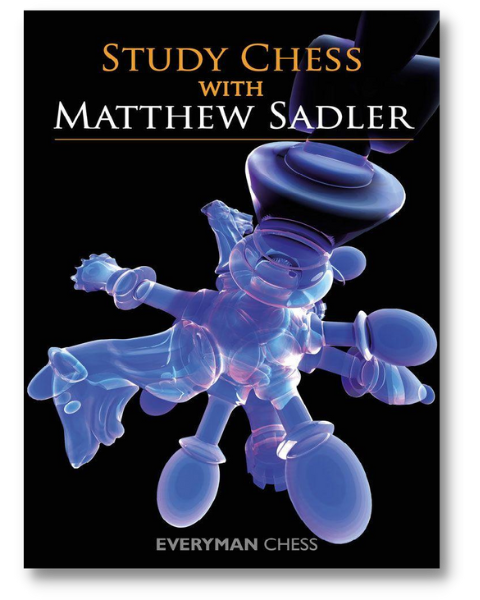
My next book “Chess for Life” (Gambit) was written together with English women’s player Natasha Regan and it was a very enjoyable collaboration. The idea for the book was heavily influenced by the English Grandmaster Keith Arkell’s success at the senior level. Having turned 50, he seemed to have found a new lease of energy and motivation, winning the European Seniors title and sharing first in the World Seniors (silver on tie-break) Natasha and I started talking about the players who had managed to keep their high playing strength despite advancing years and we wondered what their secret was. Was it playing style, opening repertoire, or a certain attitude to chess and life? We decided to find out! Through interviews and chess analysis of 13 players such as John Nunn, Nigel Short, Judit Polgar, Sergei Tiviakov, Jon Speelman and of course Keith Arkell, we attempted to distil the essence of their longevity and I think we did a pretty good job! The most memorable parts of the book for me are the interviews with English amateur Terry Chapman and English Grandmaster Jon Speelman. We interviewed them on the same day and the contrast between Terry’s rigorous and structured approach and Jon’s chaotic whirlwind of ideas was fascinating to witness!
In the past few years, my name has become indelibly associated with engine chess, and this all began with “Game Changer” (New in Chess) also written together with Natasha Regan. It is the biography of a player of the future: DeepMind’s self-learning AI algorithm AlphaZero, which evolved to a superhuman level of chess by playing 44 million lightning-fast games against itself in 8 hours! Through interviews with Demis Hassabis (the DeepMind CEO, a very promising player in his youth and still a strong and keen chess player nowadays) and many of the engineers involved in AlphaZero’s development, “Game Changer” demonstrates how AlphaZero trains, thinks and plays.
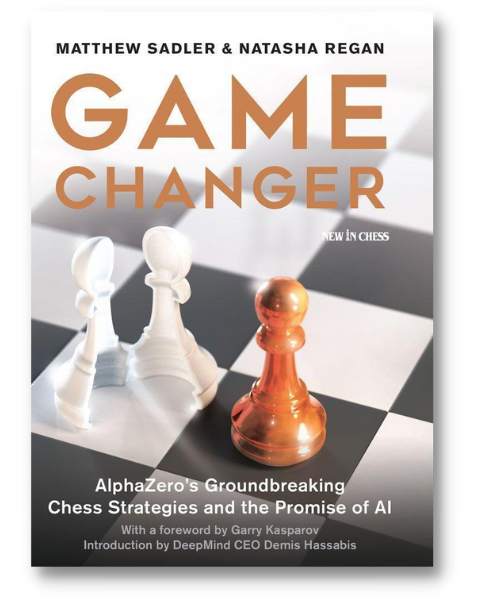
The chess core of the book is a detailed thematic analysis of AlphaZero’s play, building a complete picture of AlphaZero’s “chess personality”. The analytical work involved was simply enormous, but it was without a doubt the most thrilling chess work I have ever done! I think that no one expected AlphaZero’s training to result in games of such staggering beauty, replete with long-term sacrifices, wild attacks, and subtle positional maneuvers. The emotional impact of playing through a few hundred of AlphaZero’s games for the first time at the DeepMind offices in early 2018 will never leave me – I couldn’t believe that chess could be this beautiful when played by a machine! My all-time favorite is the breathtaking game we called “Exactly How to Attack!” which features no less than 7(!) pawn sacrifices from AlphaZero!
Exactly How to Attack:
Analysing AlphaZero games soon got me interested in websites where engine games were played and I particularly loved the TCEC website (https://tcec-chess.com/) where many different chess engines confront each other 24/7, 365 days a year at slow time controls. I was extremely fortunate to start following engine chess passionately at a moment when amazing developments were taking place. The Leela Zero open-source project looked first to replicate and then surpass AlphaZero’s achievements, while the Stockfish open-source project went into overdrive producing significant strength improvements at a furious pace. A new “neural net” technology called NNUE – different from AlphaZero’s and Leela Zero’s technology but also based on the principle of self-learning – heralded a further enormous jump in strength, first for early adopter Stockfish and then for many other engines after.
Before you knew it, the average engine game at the TCEC was a riot of pawn sacrifices, wild attacks, and deep strategy! This feast of glorious chess stimulated me to write “The Silicon Road to Chess Improvement“ (New in Chess) in which I shared my love of engine chess in 2 ways. The first section of “The Silicon Road to Chess Improvement“ was all about training with engines: how can you turn your engine into a real training partner instead of something that just criticizes your play when you press the spacebar? ? I’m very proud of this section as I’ve never seen anything like it in any other book and I truly believe that using the techniques I demonstrate will benefit anyone’s game enormously.
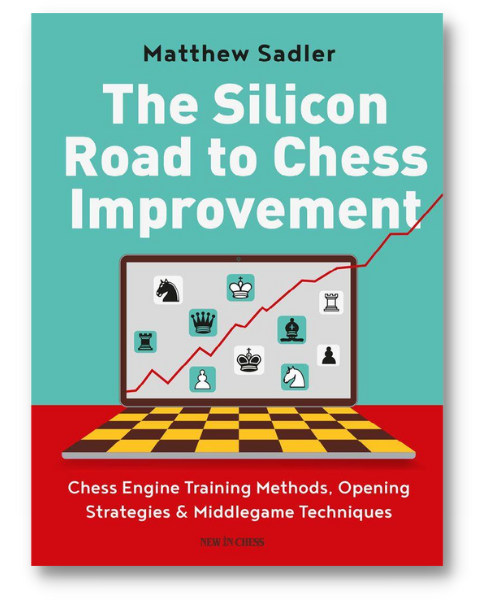
I used these same techniques to write “Game Changer”, “The Silicon Road to Chess Improvement“ and “Re-Engineering the Chess Classics” as well as all the videos on my YouTube site (https://www.youtube.com/@SiliconRoadChess) so I can definitely prove that I believe in them! The second section of “The Silicon Road to Chess Improvement“ was a thematic analysis of a series of spectacular TCEC engine games, drawing lessons from their play that could be used by human players in their games. This section is simply the highest-quality games collection you will ever find and the thrills-per-game ratio is unbelievably high! The fabulous game Stockfish Classical – Leela Zero from Season 18 of the TCEC is probably the most outrageous tactical exhibition I have ever seen!
My most recent book is “Re-Engineering the Chess Classics” (New in Chess) written together with my childhood coach Steve Giddins and it brings together my biggest chess passions: chess engines and the great players of the past. We analysed 35 classic games in depth using the innovative engine analysis techniques which I first described and demonstrated in “The Silicon Road to Chess Improvement“ and I truly believe that we produced an exceptionally beautiful and instructive games collection. It seems contradictory to love both engine chess and classic chess, but perhaps that’s just a demonstration of how rich our game is! I think I truly fell in love with chess after reading and re-reading Edward Lasker’s wonderful “Chess Secrets I Learned from the Masters” as a young boy. Lasker’s fond and lively descriptions of the brilliance and the strangeness of the pioneers of chess such as Emanuel Lasker, Alekhine and Capablanca bound me emotionally to the history of our game and I have felt this connection strongly ever since. Analysing classic games has always been a way of reconnecting with the feeling that first fueled my chess obsession and it’s been wonderful to discover that chess engines only enrich that process.
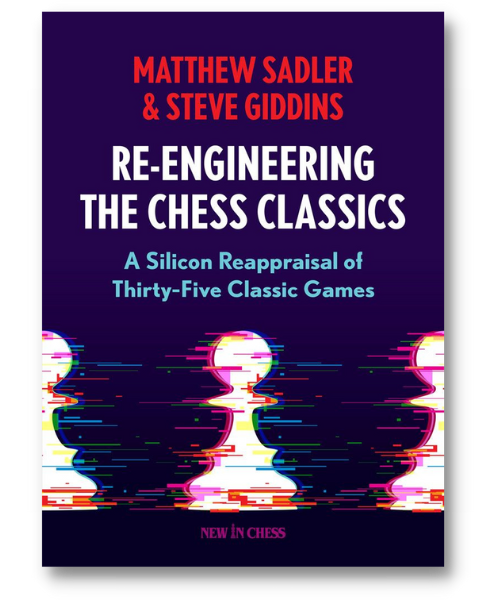
While writing “Re-Engineering the Chess Classics” there were moments of amazement and deep respect as it emerged that classic players had intuitively found a path through complex problems in a way that could not be bettered by the engines. At the same time, there were many moments of discovery when positions I had seen as a child and learned to view in a certain way, turned out to be out to be much more multi-faceted and beautiful than anyone had ever realized before – most notably in endgames and strategical positions.
The analysis technique of playing engine matches from various positions taken from classic games – first explained and demonstrated in “The Silicon Road to Chess Improvement“ – also produced a series of absolutely brilliant games that would grace any Best Games collection! “Re-Engineering the Chess Classics” contains both well-known and lesser-known classic games but if I had to pick out a couple of favorites then it would be Euwe-Yates Hastings 1931 – an absolutely crazy Samisch King’s Indian of the type we associate with Bronstein in the 1950s! – and Tartakower-Bogolyubow London 1927, in which both of these optimistic and aggressive players continually outdo each other in setting fire to their opponent’s position!
I’m extremely happy to be the August author of the month for Forward Chess as I can’t think of a better way to read chess books than with Forward Chess: whether it’s following the games easily without a physical chess board, calling up an engine to quickly answer any questions or being able to skip past or zoom into variations as the mood takes you!
Have any thoughts or questions? Let us know in the comments below!
For a limited time, Forward Chess is offering a special sale on all of Matthew Sadler’s computer-related books.

Chess has been part of my life since my grandfather taught me the moves at the age of 7. I became an International Master at the age of 14, a Grandmaster at the age of 19 and won the British Championship twice, establishing myself as the England No.3 behind Michael Adams and Nigel Short.
After retiring in 1999, normal life began as I moved to Holland and started work as an IT Consultant. In 2010, I got the urge to start playing chess again, and my very first tournament back – a strong rapid tournament in Wageningen – ended in victory with a 100% score. From that point on, my spare time just hasn’t been safe from chess!
Throughout my career I’ve loved writing about chess. I’ve reviewed books for New in Chess for many years, recorded a series of chess videos for Chess24.com and Chessable, and written 9 books, the most recent of which – Re-Engineering the Chess Classics, co-authored with my childhood coach Steve Giddins – appeared in May 2023. A previous book – Game Changer, co-authored with WIM Natasha Regan – won the ECF Book of the Year prize and the FIDE Book of the Year prize.”
- The Power of Pattern Recognition: The Woodpecker Method 2 - August 20, 2024
- Rock Solid Chess: Volume 2 - February 21, 2024
- Unsung Heroes of Chess - February 19, 2024
